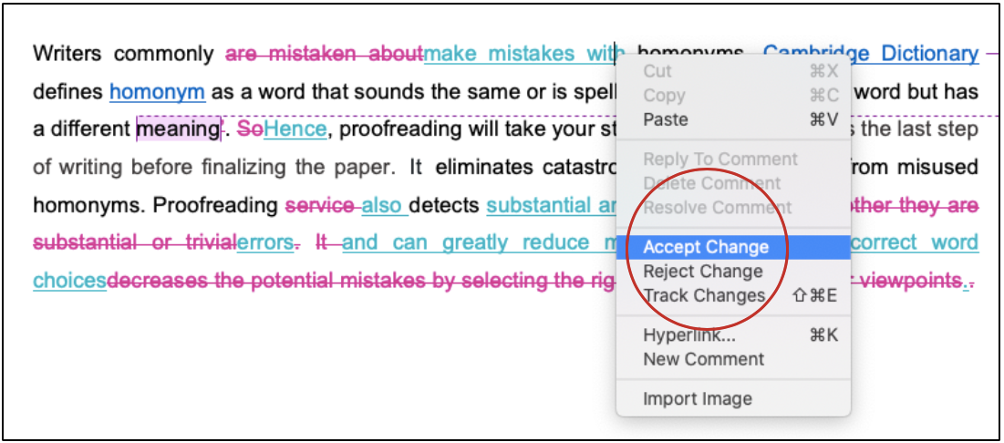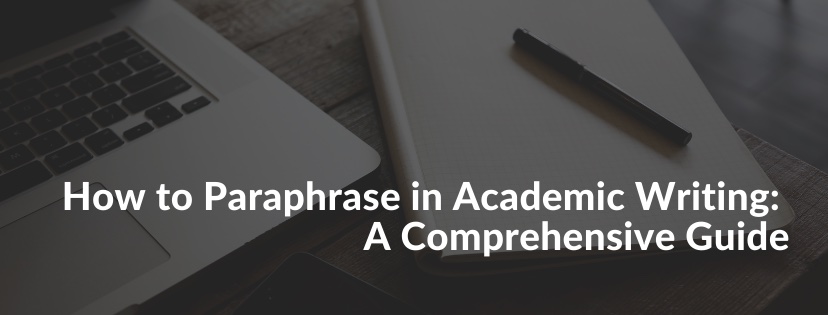One of the major struggles that English speakers and writers suffer from is the different variants of American English and British English. Mistakes regarding these variants are very common that even experts get confused at times. Therefore, if you are struggling with these differences, don’t worry — you are not alone. Now, what you can do is gradually learn more about the two English variants. We assembled a comprehensive guide that highlights the basic differences between American and British English.

This handout discusses the main differences between American and British English. To give you an opportunity to practice proofreading, we have left a few spelling, punctuation, or grammatical errors in the text. See if you can spot them! If you spot the errors correctly, you will be entitled to a 10% discount.
One of the major struggles that English speakers and writers suffer from is the different variants of English: American English and British English. These mistakes are very common that even experts get confused at times. Therefore, if you are struggling with these differences, don’t worry — you are not alone. Now, what you can do is gradually learn more about the two formats, and for that, you have arrived at the right place.
We assembled a comprehensive guide that highlights the basic differences between American and British English so that you can learn the differences and use them effectively.
The English language came to the Americans through British travelers who arrived on American soil through seas way back in the 17th and 18th centuries. However, at that time, spellings were still not standardized as there were no dictionaries. When dictionaries came to be, lexicographer Noah Webster decided to change the spellings to show the cultural independence of this language from its motherland. So that is how the difference came to be. However, that is not the only factor that causes differences between the two variants. The main things that distinguish American English from British English are the following factors:
Spelling
Vocabulary
Pronunciation
Minor grammatical context
Let us take our time to take a deeper look into the above-mentioned factors to understand the differences better and learn wisely.
As far as spellings go, the differences are merely based on a letter or two. Let us take a look (American English vs. British English):
|
American English |
British English |
|
-yze, -ize, -ense analyze, apologize, defense |
-yse, -ise, -ence analyse, apologise, defence |
|
-or Color |
-our Colour |
|
-er Center |
-re Centre |
|
-el, -ll marvelous, fulfill |
-elle, -l marvellous, fulfil |
|
-t burnt |
-ed burned |
|
Uses -e instead of -oe or -ae Maneuver or Leukemia |
Uses -oe or -ae Manoeuver or Leukaemia |
|
Does not use -e for modification Love becomes lovable |
Uses -e for modification Love becomes loveable |
The table below outlines the preferred spelling of some words in American and British variants:
|
US English |
UK English |
|
analyze |
analyse |
|
capitalize |
capitalise |
|
categorize |
categorise |
|
characterize |
characterise |
|
endeavor |
endeavour |
|
enroll |
enrol |
|
flavor |
flavour |
|
fulfill |
fulfil |
|
globalize |
globalise |
|
honor |
honour |
|
humor |
humour |
|
hypothesize |
hypothesise |
|
inquire |
enquire |
|
install |
instal |
|
labor |
labour |
|
legalize |
legalise |
|
maneuver |
manoeuvre |
|
neutralize |
neutralise |
|
optimize |
optimise |
|
organize |
organise |
|
organization |
organisation |
|
plow |
plough |
|
privatize |
privatise |
|
randomize |
randomise |
|
realize |
realise |
|
recognize |
recognise |

Difference in vocabulary
The two formats also observe a different vocabulary for specific words. Some prime examples are as follows (American English / British English):
|
US English |
UK English |
|
Truck |
Lorry |
|
Hood (of a car) |
Bonnet |
|
College |
University |
|
Chips |
Crisps |
|
Soccer |
Football |
|
Store |
Shop |
|
Apartment |
Flat |
|
Mailbox |
Postbox |
|
Cookie |
Biscuit |
|
leukemia |
leukaemia |
|
maneuver |
manoeuvre |
|
defense |
defence |
|
license |
licence |
|
offense |
offence |
|
analog or analogue |
analogue |
|
catalog or catalogue |
catalogue |
|
dialog or dialogue |
dialogue |
|
pants |
trousers |
|
flat |
apartment |
|
holiday |
vacation |
There are obvious differences in pronunciation, owing to the accent difference. Apart from that, there are a few differences in pronunciation, where the pronunciation of different vowels and consonants comes into play. Also, there are differences in how stress and intonation are applied to various words and phrases.
Lastly, for grammatical context, though the general rules are the same, there are a few disparities, of which a few are as follows:
Use of Present Perfect
You need to use present perfect to describe an action in the recent past with an immediate effect on the present when using British English.
Example: I’ve eaten too much. I should rest for a while.
However, for American English, it would be as follows: I ate too much. I should rest for a while.
Use of the verb ‘‘get’’
While British English will use ‘‘got’’ as the past participle of ‘’get,’’ American English will use ‘‘gotten’’
Example of British English: He’s got more crafty in his approach
Example of American English: He’s gotten more crafty in his approach
Forms of possession
British English will generally use ‘‘have got’’
Example: Have you got the required documents?
American English will use ‘‘have’’
Example: Do you have the required documents?
Using quotation marks is probably the most debated among all punctuation marks. The usage of single or double quotation marks is predominantly dependent on the preferred type of English variant in your text. For American English, double quotes are used consistently for all conditions where quotation marks may be needed, whereas British English prefers single quotation marks. Therefore, a writer should be conscious of the language to make the correct usage of both symbols.
In American English, single quotation marks should be used to enclose a quotation within a quotation and inside quotation marks should be used to place periods and commas.
In British English, single quotation marks should be used to enclose a quotation and double quotation marks should be used to enclose a quotation within a quotation. Also, outside quotation marks are used to place periods and commas.
In American English:
Double quotation marks are used to enclose a quotation.
Single quotation marks are used to enclose a quotation within a quotation.
Inside quotation marks are used to place periods and commas.
Outside quotation marks are used to place other punctuation.
In British English:
Single quotation marks are used to enclose a quotation.
Double quotation marks are used to enclose a quotation within a quotation.
Outside quotation marks are used to place periods and commas.
Outside quotation marks are used to place other punctuation.
Here are some examples:
|
American English |
British English |
|
He said softly, “I have a headache.” |
He said softly, ‘I have a headache’. |
|
Many dream images were characterized as “raw,” “powerful,” and “evocative.” |
Many dream images were characterized as ‘raw’, ‘powerful’, and ‘evocative’. |
So those are the basic differences between American and British English. Though it may seem confusing, once you start noticing the factors, recognizing the format becomes easier. Of course, practice and learning are always the best way to learn and progress. However, despite which format you follow, what matters is to stay consistent. When you are working for academic or commercial purposes, make sure which format is preferred and use that. If no format is specified, then start with one and stick to it till the end. In other words, if you start with American English, make sure you keep on using it till the end. This is where mistakes are common so make sure you are careful. If you are not sure about your application, you can easily rely on professional editing and proofreading services. Professional editors and proofreaders can easily help you maintain a consistent format throughout your work, alongside increasing the quality of your work.
Best Edit & Proof expert editors and proofreaders focus on offering papers with proper tone, content, and style of academic writing, and also provide an upscale editing and proofreading service for you. If you consider our pieces of advice, you will witness a notable increase in the chance for your research manuscript to be accepted by the publishers. We work together as an academic writing style guide by bestowing subject-area editing and proofreading around several categorized writing styles. With the group of our expert editors, you will always find us all set to help you identify the tone and style that your manuscript needs to get a nod from the publishers.

You can also avail of our assistance if you are looking for editors who can format your manuscript, or just check on the particular styles for the formatting task as per the guidelines provided to you, e.g., APA, MLA, or Chicago/Turabian styles. Best Edit & Proof editors and proofreaders provide all sorts of academic writing help, including editing and proofreading services, using our user-friendly website, and a streamlined ordering process.
Visit our order page if you want our subject-area editors or language experts to work on your manuscript to improve its tone and style and give it a perfect academic tone and style through proper editing and proofreading. The process of submitting a paper is very easy and quick. Click here to find out how it works.
Our pricing is based on the type of service you avail of here, be it editing or proofreading. We charge on the basis of the word count of your manuscript that you submit for editing and proofreading and the turnaround time it takes to get it done. If you want to get an instant price quote for your project, copy and paste your document or enter your word count into our pricing calculator.
Contact us to get support with academic editing and proofreading. We have a 24/7 active live chat mode to offer you direct support along with qualified editors to refine and furbish your manuscript.
Follow us on Twitter, LinkedIn, Facebook, Instagram, and Medium.
For more posts, click here.
How to Determine Variability in a Dataset
14.10.2023
How to Determine Central Tendency
19.02.2023
How to Specify Study Variables in Research Papers?
14.01.2023
Population vs Sample | Sampling Methods for a Dissertation
14.01.2023
How to Ensure the Quality of Academic Writing in a Thesis and Dissertation?
04.12.2022
How to Avoid Anthropomorphism in Your Dissertation?
04.11.2022
How to Write a Research Methodology Section for a Dissertation and Thesis
07.08.2022
How to Write a Theoretical Framework for a Dissertation and Thesis?
05.08.2022
How to Write Literature Review for a Dissertation and Thesis
02.08.2022
How to Write a Dissertation and Thesis Introduction
31.07.2022

Academic writing is one of the most systematic writing formats to exist. This type of writing requires you to have precise knowledge about writing formats, style guides and still has additional rules to follow, depending on your type of work. Though it is not something otherworldly and is very much attainable through practice, it can still be a chaotic mess for beginners. A good way to improve yourself is to familiarize yourself with the language rules. In this article, we will take a look at the most important language rules that you must know of and exercise eventually.
Continue Reading
Paraphrasing is a regular exercise in academic writing. High school students, college students, and research scholars are required to paraphrase to demonstrate their understanding of a text. However, there are cases when, due to ineffective paraphrasing, instances of plagiarism dot an academic manuscript. Therefore, academic writers must correctly understand the fundamentals of academic paraphrasing and apply them to their writings to avoid any occurrence of any academic offense. This article will peruse the anatomy of academic paraphrasing. In addition, it will examine how paraphrasing is different from summarization and suggest ways to paraphrase effectively.
Continue Reading
Writing a thesis or dissertation is considered the final phase of your Ph.D. journey. You must cover three to five years of study and research into your thesis. A doctoral thesis or dissertation is a long essay of knowledge and research on a specific niche that poses interesting questions and answers with your reasoning. Ph.D. candidates should carefully choose the study topic according to their expertise. This article explains how to write an impeccable Ph.D. thesis for outstanding results in 6 helpful steps.
Continue Reading